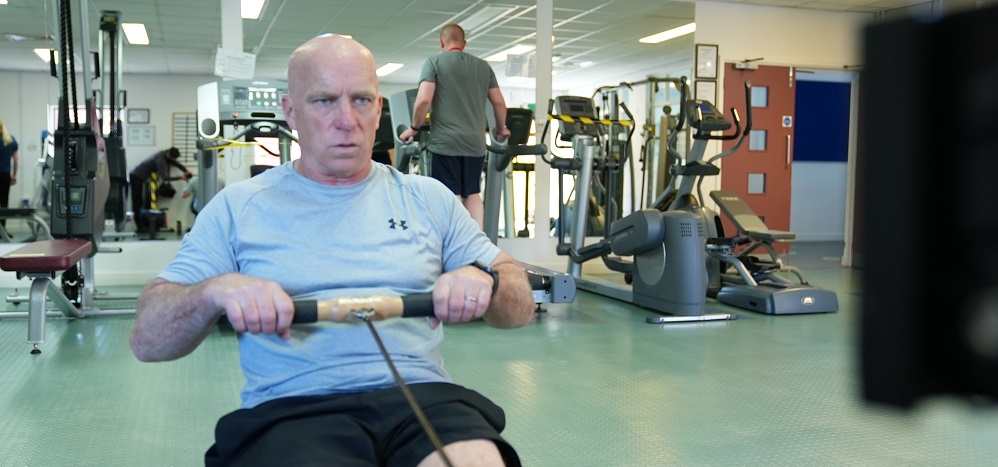For retained firefighter Simon Amos, being at peak fitness has always been a priority – not only for his role in the Scottish Fire and Rescue Service, but also in his day job running a sports centre.
So when he suddenly collapsed following a routine 10K race, he knew something wasn’t right.
Simon, 55, who lives on the Isle of Lewis, was diagnosed with angina and rushed to hospital for a quadruple bypass. Complications then meant he was in a coma for several days, and due to Covid-19 restrictions, his family weren’t able to be by his side.
Ever since, he’s been focusing on his long road to recovery – and he says a week’s stay at Jubilee House, our centre in Cumbria, was instrumental in not only improving his physical fitness, but also helping him focus on the toll his ordeal had had on his mental health.
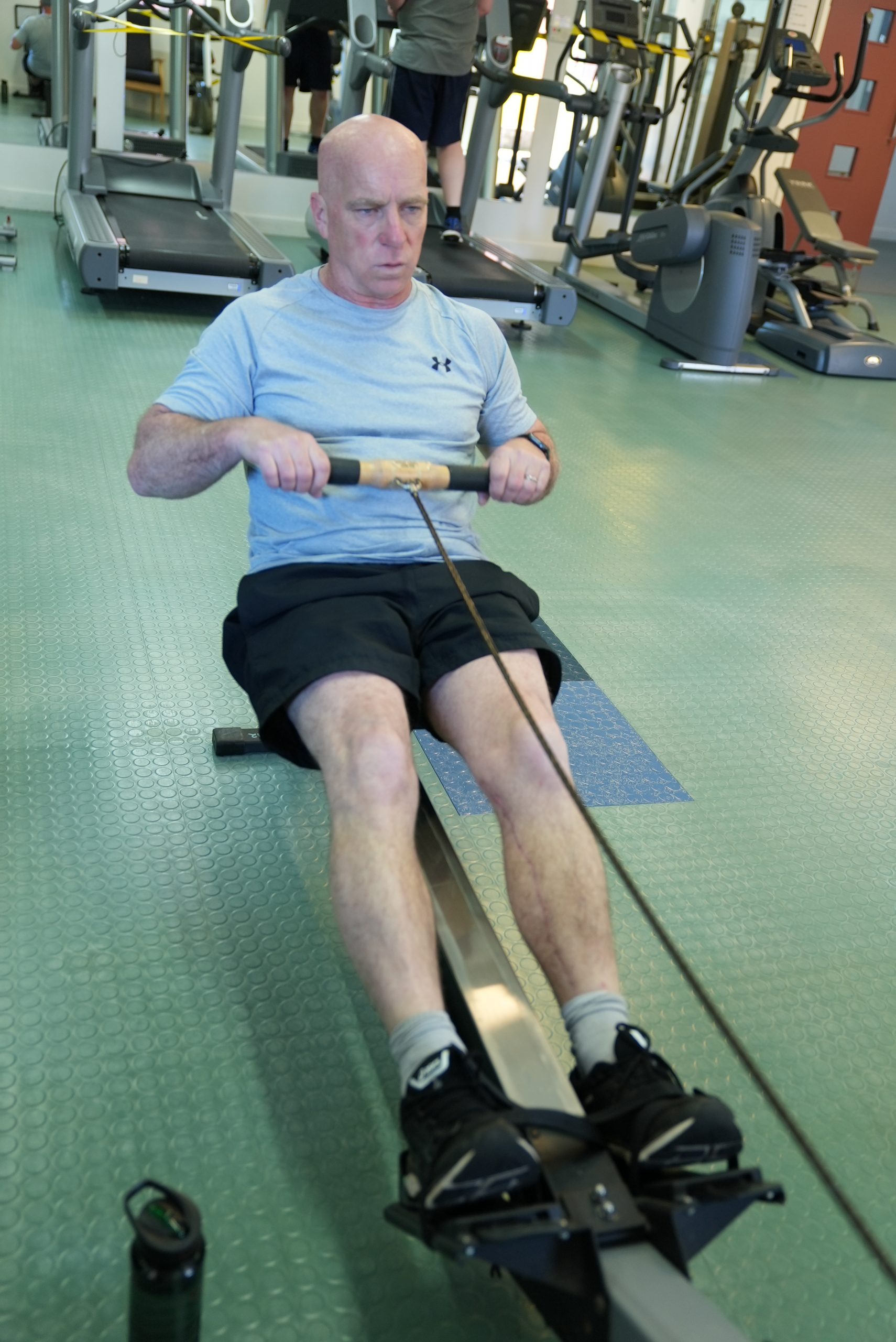
“I finished a 10K race, something I do regularly, and I was very slow,” says Simon. “Afterwards I felt dreadful. I collapsed and after that I decided I should see a doctor and find out what had happened. He said I had angina…
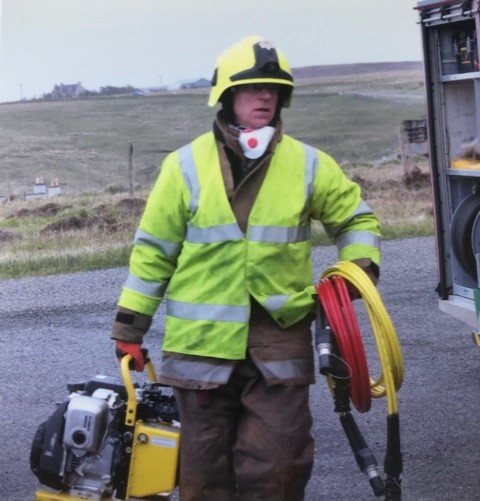
“It’s a genetic problem with my heart, my whole family have it I’ve since found out, but we never knew. When you’re fit and not terribly old or overweight, it’s quite a shock to find out you’ve got something so serious.
“There’s no question being a firefighter is a very physical job, you’re required to keep fit and strong, able to respond and act with strength and stamina for reasonably long periods of time. It’s something we all know we have to do.”
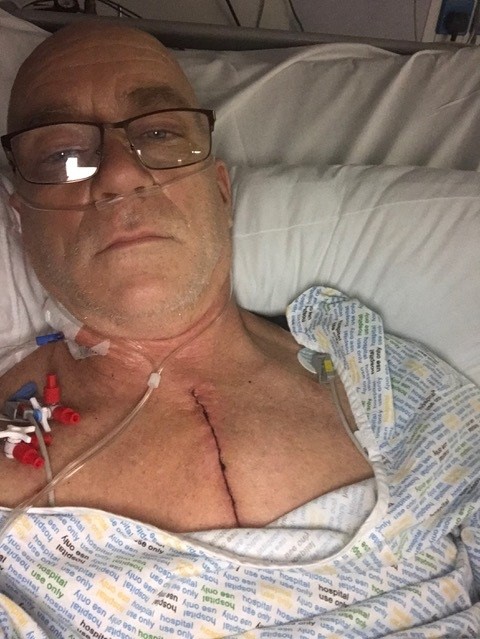
Fortunately, the operation itself went well. However, Simon suffered some complications afterwards which led to several days in a coma.
“They ended up having to take me to theatre to shock me at one point, my heart was doing this fluttering thing,” says Simon. “It was horrendous for my wife because she was at home and phoning up saying, ‘is he out the operation yet?’ Then they’re saying, ‘he is but he’s not waking up’. She’s there with our three kids pretending everything’s alright.
“I was totally confused when I woke up – that was the worst part, I didn’t know where the hell I was or what was going on. And it hurt like hell.

“The NHS were unbelievable, they looked after me, attended to all the complications and got me home as soon as they could. But there comes a point where the NHS says, ‘we’ve done all we can do’. But at that point, you may not be at the point where you’re ready to become an active firefighter again.”
While Simon focused on his recovery at home, he says it took a huge toll on him, as he was unable to do many of the day-to-day things he’d taken for granted before.
“It’s incredibly frustrating not being able to do what you’d normally be able to do,” he says. “When you’re part of a team doing something important, you feel like you’re letting your team down. But it’s a great job – we don’t do it out of a sense of duty, we do it because we love the job.
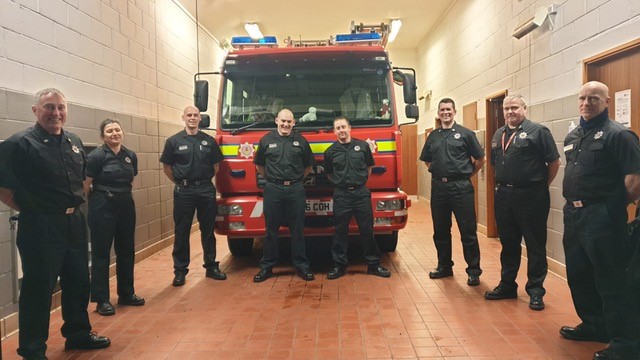
“The biggest thing after the operation was actually the physical wounds. You have this incredible weakness in your upper body which is quite frightening to be honest. It’s difficult to cope with – you’re used to being strong and fit and healthy, and you find yourself unable to manage normal daily tasks you wouldn’t have thought about before.”
Simon knew about the support the Charity offered beneficiaries, but never thought he’d need it himself. It was only when one of his senior officers suggested he call up that he thought about it.
“The centres weren’t open at the time and they spoke to me about a lot of the support online,” says Simon. “As it turned out, the lockdown then came to an end and they told me they could get me in straight away, which was incredible.
“Even though we come from different Brigades and organisations, we’re very much all firefighters together.”
Simon Amos
“It’s been really hard… the whole Covid thing has added a completely terrible layer. The week at Jubilee has been fantastic, the facilities are unbelievable.
“The help that the Charity gives us is way above the physical assistance. It’s the feeling that you’re part of this big team, and the ability to get back to where you need to be is almost a dream when you’re lying in a hospital bed.
“Being here, you feel part of the firefighting family – even though we come from different Brigades and organisations, we’re very much all firefighters together – the comradery and everything, it’s a fantastic place to be because you feel like you’re around your own kind of people.
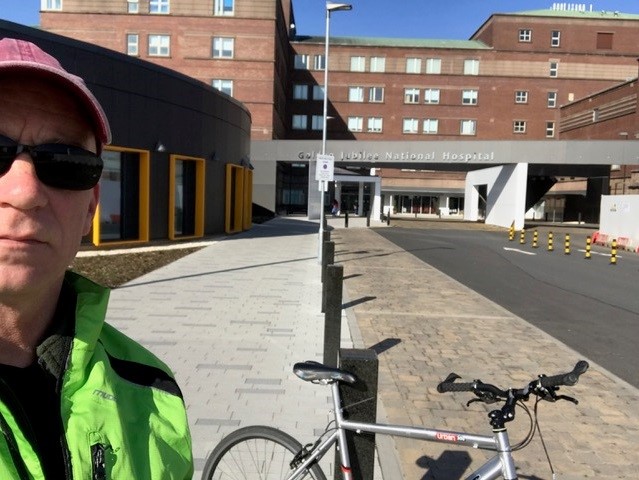
“They’re very careful, the way they offer the support for the additional problems that you face with the mental health side too. Whether or not it’s to do with a physical injury or illness, mental health can be a real problem. Firefighters, just like any of the emergency services, face difficult situations and we need help sometimes.”
Simon is now encouraging any other beneficiaries who feel they need a helping hand to get in touch with the Charity.
“One of the problems we’ve had over the last year is we’ve not been able to train as normal,” he adds. “That’s a real problem, because a lot of what makes us capable of doing a good job and feeling confident about it is the consistency of the training, spending time together, running through the routines and techniques we use.
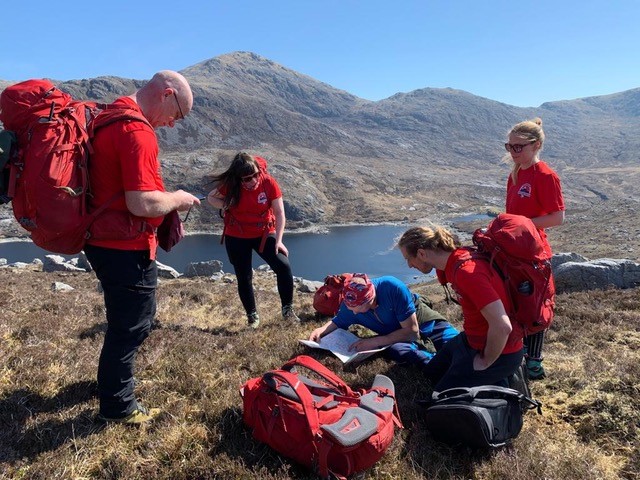
“When the training stops, you struggle with the confidence and you have to deal with that on your own, because you can’t sit in a room with your teammates.
“If the help is there, it’s silly not to take it. I think pretty much everyone who comes here will be going home to their team and saying, ‘come on, we’re going to do something to raise funds for the Charity’.”
If you’re struggling with your physical or mental health, we may be able to help you. Call our Support Line on 0800 389 8820 or make an enquiry online.

